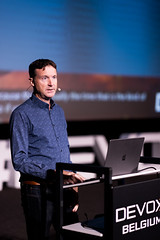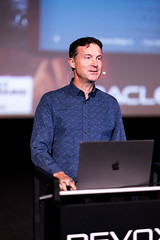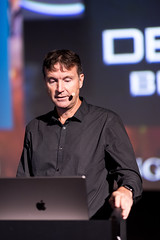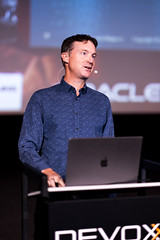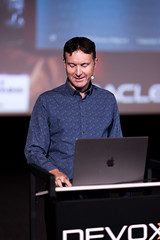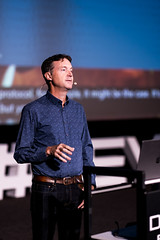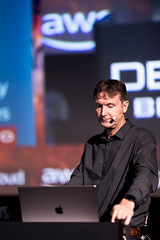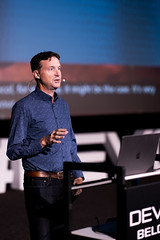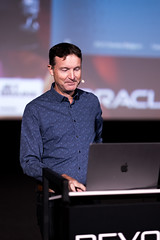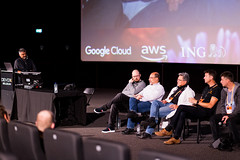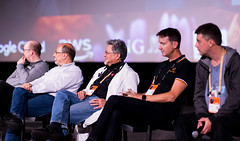Per Minborg
Oracle, Inc
Per Minborg works in the Java Core Library team at Oracle and is also a member of the Panama project team. He is an inventor and developer with more than 20 years of Java coding experience. He has been a frequent contributor to various open-source projects, is a regular speaker at events, an Oracle JavaOne alumnus, and co-author of the publication Modern Java.
The long-awaited "Foreign Function $ Memory API" (the "FFM API") finally became public in Java 22. In this talk, we will explore how the FFM API enables native methods and memory access with pure Java code and how high performance and safety can be achieved at the same time.
Fundamental concepts like MemorySegments, MemoryLayouts, Arenas, and native calls will be explained in detail and we will then build on these fundamental building blocks in a hands-on coding demo to customize their behavior and add functionality. Concepts like memory mapping, custom arenas, and high-performance serialization will be explored.
These building blocks can be reused across many typical and contemporary application domains and we will finish up by writing a small low-latency fintech application that makes use of the concepts above. Who knows, maybe your existing projects can get better performance and safety by using the FFM API?
More Fundamental concepts like MemorySegments, MemoryLayouts, Arenas, and native calls will be explained in detail and we will then build on these fundamental building blocks in a hands-on coding demo to customize their behavior and add functionality. Concepts like memory mapping, custom arenas, and high-performance serialization will be explored.
These building blocks can be reused across many typical and contemporary application domains and we will finish up by writing a small low-latency fintech application that makes use of the concepts above. Who knows, maybe your existing projects can get better performance and safety by using the FFM API?
Project Leyden aims to improve the startup time, warmup time, and footprint of Java applications. The best way to improve these metrics is to identify computation that we can simply eliminate. Failing that, we can shift computation temporally, later or earlier in time. We can shift it to a point later in run time, in the hope that it won’t always be necessary but, if it is necessary, at least moving it out of the startup and warmup phases. We can also shift computation to a point earlier than run time, such as compile time, thereby also moving it out of the startup and warmup phases. We’ll dive into what all this means, how it could work, and review recent progress.
More 

